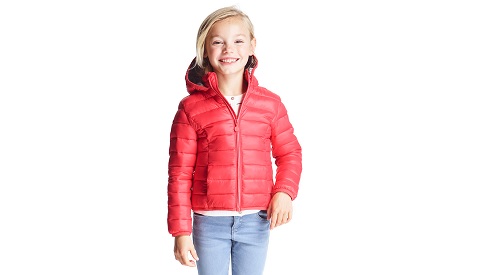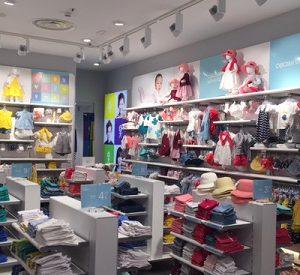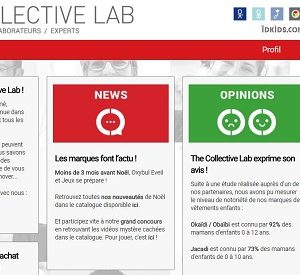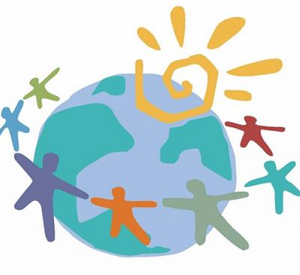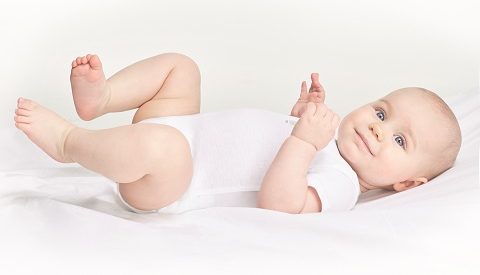

Preferred by mums for their children’s clothing, cotton is also the most used fibre in Okaïdi and Jacadi collections. But its conventional production is very polluting. That’s why since 2016 ÏDKIDS has been working to source it from more responsible growers. All well and good. But what exactly is organically grown cotton?
Because the conventional production of cotton is very polluting and uses up a lot of water, in 2016 ÏDKIDS set itself the target of sourcing and tracing all of its cotton from more responsible suppliers by 2025, meaning that:
- We know where the cotton comes from.
- Its production respects the environment.
- It’s produced in decent working conditions.
What are our plans for organically grown cotton?
After a trial run with key suppliers to test the feasibility of organic cotton and identify areas for improvement, we’re now ready to move to the next stage with respect to Okaïdi, the ÏDKIDS community brand that uses the most cotton. By 2025 we want all Okaïdi products to be made out of organic and/or recycled cotton.
For Jacadi it’s a bit more complicated due to lower volumes. Nonetheless we’re trying out organic cotton for five boys’ items this summer. We’re aiming to source 16% of our Winter 2019 collection and 20% of our Summer 2020 collection from organic cotton.
Why does this matter?
Concern for the environment and society is the foundation of HESSERBraC, our CSR policy.
If we want to make a difference, we have to start at home and in our own industry by ecodesigning products and building a socially responsible supply chain.
It begins with sourcing raw materials that respect the environment and the people who produce them.
What are the benefits of organically grown cotton?
- Organic cotton is grown without GMOs or toxic substances harmful to people.
- Its production is also less polluting.
- It keeps and even improves the fertility of the soil and increases biodiversity.
- Small-scale growers get better prices for organic cotton because they sell directly to end buyers.
- It’s fully traceable from fibre to fabric.
- Last but not least, consumers recognize and value cotton clothing that is certified organic.
How does certification work? We mostly work with two labels:
GOTS (Global Organic Textile Standard):
- Items must be at least 95% organic cotton. The remaining 5% can be fibres such as Lycra (spandex) or polyester – never conventional cotton.
- All chemical inputs in the manufacturing process (incl. spinning, weaving, dyeing and stitching) must comply with GOTS.
- All firms and contractors that are part of the cotton supply chain must have had a social audit and comply with GOTS.
- All firms and contractors that are part of the cotton supply chain must have had an environmental audit and comply with GOTS.
- Accessories such as buttons, fasteners and zips must also comply with GOTS.
OCS 100 (Organic content standard)
- Items must be at least 95% organic cotton. The remaining 5% can be fibres such as Lycra (spandex) or polyester – never conventional cotton.
- No compliance criteria for chemical inputs.
- No social audit of firms and contractors in the supply chain.
What are the challenges ahead?
Organically grown cotton entails working harder to:
- Set up long-term partnerships with our established suppliers who are willing to switch to this new system. This comes naturally to us as a company that seeks to spread practices that are good for people and the planet. For example, Jacadi recently made it possible for two suppliers in Vietnam to obtain the “organically grown cotton” certification.
- Find new suppliers who comply with the certification standards and our own strict requirements in terms of quality, style and price. Stéphanie Delesalle, Obaïbi market manager explains “We’ve made good progress with Obaïbi knitwear like onesies and T-shirts but are still looking for suppliers of woven and knitted fabrics.”
- Tell our customers about our efforts to help people and the planet by means of accurate, detailed and informative advertising.
- Gradually set up additional beneficial processes throughout the supply chain. One example is to come up with less polluting ways of dyeing and fading jeans.
Then what?
In addition to cleaning up our supply chain, we’re investing in R&D. In April 2018 we set up an innovation programme in conjunction with the European Centre for Innovative Textiles (CETI).
Its aim is to turn recycled cotton clothing (such as T-shirts donated via LOVE BAG) into a thread that meets Okaïdi’s quality standards and economic criteria.
We want to set up a circular cotton economy to further reduce the environmental impact of this raw material without having to turn to other natural resources.

